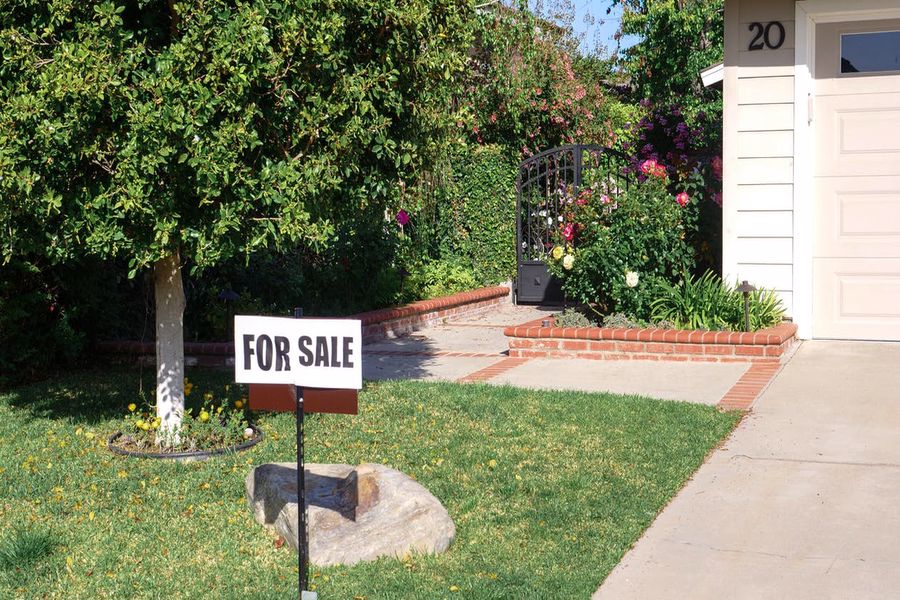Recently, the California legislature has passed several new real estate laws that brokers should be aware of. Thus, it’s crucial to quickly examine your practices to know if you’re abiding by the new flat fee real estate broker California laws.
Flat Fee Real Estate Broker California Laws
Real estate brokers operating in California need to comply with numerous state laws as stipulated by the Department of Real Estate. Below are some of the regulations you should follow.

Homestead Exemption (AB 1885)
If you own a property in California, you are eligible for a homestead exemption. It protects you against losing your home if you file to other creditors or for bankruptcy. The exemption amount has not changed in a while. However, starting this year, creditors cannot touch $300,000-$600,000 of a property’s equity.
This change is aimed at enabling you to clear your debts and keep your home. For a lien to be placed on a home, the judgment should be high enough to cater for the median home price, at $600,000 maximum. So, unless you owe more than $600,000, you can keep your property despite a lien.
Before this law, the lien could mean a foreclosure on a property if the judgment for an individual was $75,000 or $100,000 for more than one person. Although judgments can lead to financial stress as you may have to sell your home, at least it won’t lead to a foreclosure.
[lyte id=’mU69g6Ao47A’ /]
Fire Notice for New Homebuyers (AB 38)
This law requires developers to tell homebuyers if the property they want to buy is in a high-risk fire area. For flat fee real estate brokers, they’ll have to do the following:
- Sign a one-page document at closing advising buyers on preparing their property for a fire.
- List items that might be vulnerable to fire like combustible landscaping, rain gutters, vents, and roof coverings as they are not fire-resistant.
- Determine if a home is built in an area prone to fires by consulting companies that prepare California Natural Hazard Disclosure Reports.
Keep in mind that this law focuses on properties developed before 2010 before stringent building standards were enacted to protect homes from fire damage.
Right of First Refusal (SB 1079)
This law stops the Great Recession from repeating when investors snapped up several foreclosed homes. Instead, it requires each home to be sold individually. This law creates new ways an investor can lose a home even after winning it during an auction.

Under the new law, if a homebuyer buys property at an auction and doesn’t live in it, renters can get the property themselves. The buyer can submit to purchase the home in the next two weeks after the auction. However, the person that won the auction will lose the home if the buyer gets the money in 45 days.
Note that the amount paid by the buyer should equal the money the auctioneer paid. The investor can still lose the property in the next 45 days if the buyer doesn’t put in an offer. Anyone that would want to stay there can bid on the home if their offer exceeds what the investor paid. This second scenario is rare because the potential buyer could have gone to the auction.
The Property Tax Transfers and Exemption (Prop. 19)
This law allows Californians aged above 55 years to sell their home, buy another one and take their tax with them. Generally, houses after purchase have tax rates go up and values reassessed. This amendment allows elder Californians to enjoy a lower tax rate if they relocate.
Under this law:
- A person can relocate up to three times and still receive tax benefits in California.
- It also applies to persons who have lost their properties in natural disasters or with severe disabilities.
- Additionally, it allows older persons to buy expensive homes and blend their taxable value with what they have to create a lower tax rate.
However, Prop. 19 reduces or eliminates tax benefits for transferring your home to your children. If your child gets a property whose value is below $1 million and decides to stay in it full-time, the tax rate will remain the same. If they don’t live in the house, they lose the tax benefits.
Home Association Rentals (AB 3182)
In the past, a Home Association would limit rentals to 10% or even prevent them. However, homeowner association regulations must now allow 25% of their homes to be rented. The new regulations are aimed at ensuring more availability of rental properties in California.

Bear in mind that the law doesn’t limit rentals to 25%. This means Home Associations can allow all homes to be rented in a single-family home community, townhouse development, or condo building governed by a Home Association. Some of the law is also open to interpretation like if a Home Association has only three units and renting one home would be more than 25%.
In such a scenario, it’s likely one unit will be rented out. Another thing to remember is that the law prevents Home Associations from creating rules that require owners to have lived there not less than one year to rent out a home. HOAs can also block short-term rentals.
Housing Development (AB 168)
This law requires local governments to consult and offer notice to Native American tribes to weigh the effects of a project on cultural trial resources. The project may not be eligible if:
- The Native American tribe and the local government do not agree that no cultural trial resource could be affected by the project.
- The Native American tribe and the local government find a cultural trial resource that might be affected by the project and both parties fail to come up with an agreement regarding how those tribal cultural resources will be treated.
- The proposed development location is a cultural resource on a registered list.
Conclusion
Flat fee real estate brokers should consult with competent legal attorneys to ensure compliance with new regulations. Understanding applicable laws will prevent you from becoming a victim of unethical practices.





